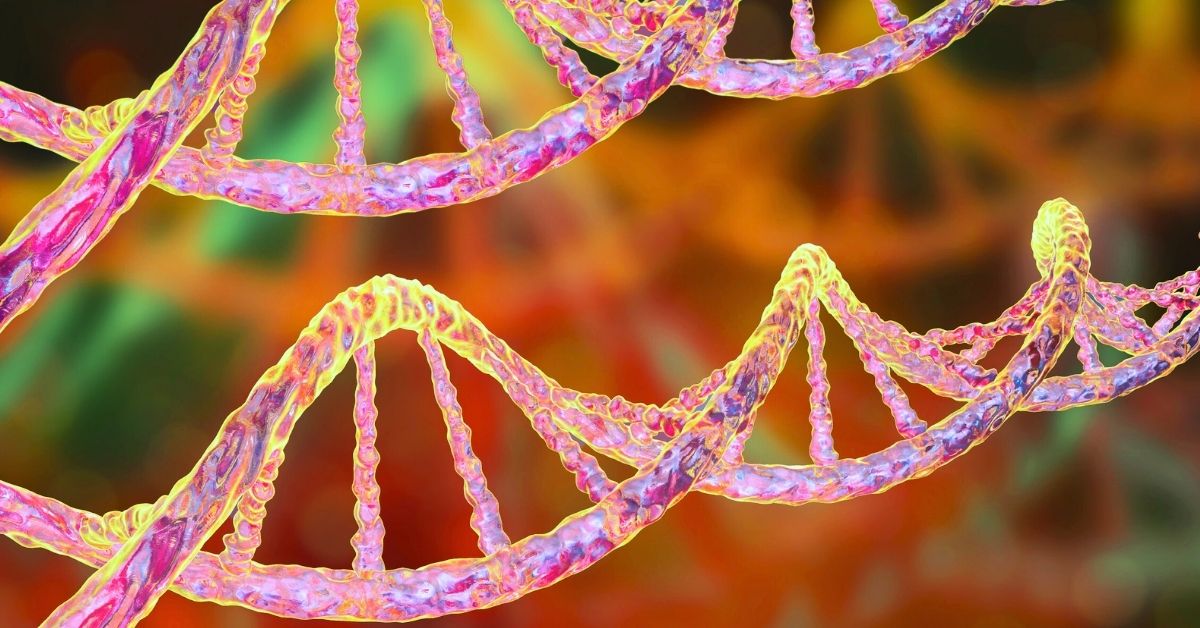Introduction to the Celiac Gene
The celiac gene refers to specific genetic markers that predispose individuals to celiac disease, an autoimmune condition triggered by gluten consumption. These markers, HLA-DQ2 and HLA-DQ8, are located on chromosome 6 and are crucial for the immune system’s ability to process gluten. While carrying these genes does not guarantee the development of celiac disease, it significantly increases the risk, as nearly all individuals with celiac disease have one or both of these markers.
Understanding the role of the celiac gene helps shed light on the genetic foundation of the condition, guiding both diagnosis and future research into prevention and treatment.
The Role of HLA-DQ2 and HLA-DQ8 Genes in Celiac Disease
HLA-DQ2 and HLA-DQ8 are the two primary genetic markers associated with celiac disease. These genes are part of the human leukocyte antigen (HLA) system, which plays a vital role in the immune system’s ability to distinguish between the body’s own cells and foreign substances.
In individuals with these genetic markers, gluten consumption triggers an inappropriate immune response. Instead of tolerating gluten, the immune system mistakenly identifies it as harmful, leading to inflammation and damage in the small intestine.
HLA-DQ2 is found in approximately 90-95% of individuals with celiac disease, while HLA-DQ8 is present in most of the remaining cases. However, it’s important to note that carrying these genes alone is not enough to develop celiac disease—environmental factors and immune system activation also play critical roles.
For more detailed information, you can refer to the National Celiac Association’s resource on celiac genes:
What Happens Without These Genes?
For individuals without HLA-DQ2 or HLA-DQ8, the likelihood of developing celiac disease is extremely low. This genetic component makes testing for these markers a useful tool in ruling out celiac disease.
How Common is the Celiac Gene in the Population?

The celiac gene is more common than many people realize. Research shows that around 30-40% of the global population carries HLA-DQ2 or HLA-DQ8. However, only about 1% of the population develops celiac disease, highlighting the complex interplay between genetics and environmental factors.
Carrying the celiac gene doesn’t mean an individual will inevitably develop the condition. Other triggers, such as gluten exposure, infections, and gut health, play a role in activating the immune response. This disparity explains why some individuals with the genetic markers never show symptoms of celiac disease.
Understanding the prevalence of the celiac gene underscores the importance of additional factors in the development of the condition. This also highlights the need for genetic testing as part of a comprehensive diagnostic approach for at-risk individuals.
Why Do Some People With the Celiac Gene Never Develop the Condition?
Not everyone with the celiac gene (HLA-DQ2 or HLA-DQ8) develops celiac disease, which raises an important question: why are some individuals affected while others remain healthy? The answer lies in the interaction between genetics, environmental triggers, and immune system behavior.
Carrying the celiac gene creates a predisposition, but additional factors must be present to activate the condition. These include:
- Gluten Consumption: The trigger that starts the immune response in genetically predisposed individuals.
- Infections: Certain viral or bacterial infections may disrupt gut health, making the immune system more sensitive to gluten.
- Gut Microbiome: An imbalance in gut bacteria (dysbiosis) may contribute to the development of celiac disease.
These findings emphasize the importance of environmental and lifestyle factors in the progression of celiac disease, even in those with a genetic predisposition.
Inheritance of the Celiac Gene: Is It Hereditary?
Celiac disease has a strong hereditary component. If a first-degree relative (parent, sibling, or child) has celiac disease, the risk of developing the condition increases significantly. Research shows that:
- About 10-15% of first-degree relatives of someone with celiac disease will also have the condition.
- The HLA-DQ2 and HLA-DQ8 genes are passed down through families, but inheriting them does not guarantee the development of celiac disease.
This hereditary nature underscores the value of family screenings, especially when one family member is diagnosed with celiac disease. Genetic testing can identify carriers of the celiac gene, providing insights into their risk of developing the condition.
Genetic Testing for Celiac Disease

Genetic testing is a valuable tool in diagnosing and assessing the risk of celiac disease. This test identifies the presence of HLA-DQ2 or HLA-DQ8 genes, helping to:
- Rule out celiac disease in individuals who do not carry these markers.
- Provide clarity for those with ambiguous symptoms or inconclusive biopsy results.
- Guide family members of individuals with celiac disease in assessing their own risk.
While genetic testing cannot confirm an active case of celiac disease, it plays a critical role in determining susceptibility. For individuals with symptoms or a family history of the condition, combining genetic testing with antibody testing and biopsies offers the most accurate diagnostic approach.
Can You Develop Celiac Disease Without the Celiac Gene?
While HLA-DQ2 and HLA-DQ8 are responsible for the vast majority of celiac disease cases, there are rare instances where individuals without these genes experience gluten-related issues. These cases are often classified as:
- Non-Celiac Gluten Sensitivity (NCGS): A condition with symptoms similar to celiac disease but without the autoimmune intestinal damage or HLA markers.
- Non-HLA Genetic Factors: Research suggests that additional, less common genetic variations may contribute to celiac-like symptoms in rare cases.
These exceptions highlight the complexity of gluten-related disorders and the importance of thorough diagnostic testing to differentiate between conditions.
Environmental Triggers and the Celiac Gene Connection
While the celiac gene provides the foundation for developing celiac disease, environmental triggers often determine whether the condition will manifest. Gluten consumption is the primary trigger, but other factors can interact with the genetic predisposition to activate the disease.
- Infections: Certain viral infections, such as reovirus or rotavirus, are believed to disrupt gut health, increasing the likelihood of triggering celiac disease in genetically predisposed individuals.
- Stress and Trauma: Physical or emotional stress, including major surgeries, childbirth, or severe illnesses, may activate latent celiac disease.
- Dietary Patterns: Early gluten introduction during infancy, or high gluten consumption, can influence the onset of celiac disease in those with the celiac gene.
Understanding how these environmental factors interact with genetics is vital for prevention and management strategies in at-risk populations.
Research Advancements in Celiac Genetics
The field of celiac genetics has seen significant progress in recent years, shedding light on the complex interplay between genes and environmental factors. Studies have revealed that:
- Non-HLA Genetic Factors: While HLA-DQ2 and HLA-DQ8 are the main genetic markers, researchers are identifying additional genetic variants that may contribute to disease risk.
- Epigenetics: Environmental factors can influence how genes are expressed, potentially explaining why some individuals with the celiac gene remain unaffected.
- Gut Microbiome: Ongoing research suggests that an unhealthy gut microbiome may exacerbate genetic susceptibility, increasing the risk of developing celiac disease.
These advancements not only deepen our understanding of the condition but also pave the way for more targeted diagnostics and therapies.
Future Therapies Targeting the Celiac Gene
As research into celiac genetics continues, new treatment options are being explored to address the root causes of the disease. Potential therapies include:
- Vaccines: Researchers are working on vaccines that aim to desensitize the immune system, preventing it from reacting to gluten.
- Immune-Modulating Drugs: Medications are being developed to suppress or modify the immune response triggered by the celiac gene.
- Gene Editing: While still in its infancy, gene-editing technologies like CRISPR hold promise for altering the genetic markers responsible for celiac disease.
These emerging treatments offer hope for individuals with celiac disease, potentially reducing their dependence on a strict gluten-free diet in the future.
The Importance of Understanding Your Genetic Risk
Understanding whether you carry the celiac gene can provide invaluable insights into your risk of developing the condition. Genetic testing allows:
- Early identification of at-risk individuals, enabling preventive measures such as monitoring symptoms and maintaining a healthy gut microbiome.
- Family members of individuals with celiac disease to assess their own genetic predisposition.
- Differentiation between celiac disease and other gluten-related disorders, streamlining the diagnostic process.
By understanding your genetic risk, you can take proactive steps toward prevention, early diagnosis, and effective management.
Conclusion: The Celiac Gene and its Role in Managing the Condition
The celiac gene is a critical piece of the puzzle in understanding celiac disease, but it is only part of the story. While HLA-DQ2 and HLA-DQ8 create a genetic predisposition, environmental factors and immune responses determine whether the condition will manifest.
Advances in genetic research have improved diagnostic accuracy and opened the door to potential new therapies that could transform the way celiac disease is managed. Understanding the role of the celiac gene not only empowers individuals to take control of their health but also highlights the importance of ongoing research and awareness.
For more insights into celiac disease and its management, explore our comprehensive guide, Celiac Disease Basics: Understanding the Foundation of Gluten-Free Living.

